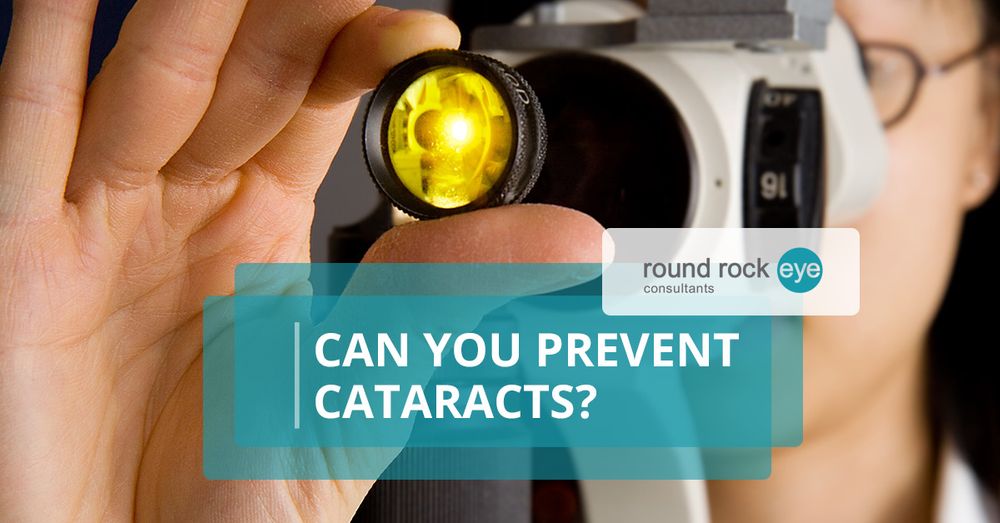In America, 22 million people over the age of 40 have cataracts. And by the age of 80, over half of Americans have some degree of cataracts. Worldwide, more people have cataracts than diabetic retinopathy, macular degeneration, and glaucoma combined, according to Prevent Blindness America.
Although the widespread nature of cataracts may appear like a huge issue, the good news is that we have very effective ways of treating it through both traditional cataract surgery or laser-assisted cataract surgery. Additionally, there may be several things you or a loved one could do in order to reduce the risk factory of contracting cataracts. In this blog, we’ll provide you with some helpful tips for preventing cataracts. If you have any questions or you’re looking for surgical treatment for your cataracts, don’t hesitate to contact your local ophthalmologists at Round Rock Eye Consultants.
Can Cataracts Be Prevented?
When it comes to the prevention of cataracts, there is no real clear-cut answer. In other words, nobody can say for certain whether there’s a way to definitively prevent them even if you take every precaution to do so. For the most part, cataracts are an age-related condition that occurs primarily in old age. However, there are several risk factors involved in cataracts that could increase the likelihood that you’ll develop them or how quickly they will develop such as diabetes and smoking. Keep reading to learn more.
Visit An Eye Specialist Regularly
Just like how you visit a dentist annually or general practitioner regularly for a checkup, you should visit your local eye specialist to check your vision. Many people think that because their doctor checks their eyesight during a checkup, there’s no need to see an eye doctor. The problem with this is that these eye tests are mainly to check your overall quality of vision and does little beyond that. You could be developing cataracts and still pass a basic vision test, but 10 years down the line, you may be facing a more serious issue.
Keep Diabetes Under Control
People with diabetes are at a higher risk of developing eye-related conditions such as glaucoma, diabetic retinopathy, diabetic macular edema (DME), cataracts, among others. In addition to visiting a healthcare clinic that specializes in diabetes and endocrinology, you should plan to make more frequent visits to oral and eye care specialists. An eye care specialist will be able to detect, diagnose, and treat any diabetes-related eye conditions before they become serious. Your ophthalmologist can also keep in contact with your primary care physician or endocrinologist to ensure that all your needs are being met as a diabetes patient.
Contact Round Rock Eye Consultants
These are just a few of the ways you can reduce your risk for cataracts. If you’d like more information about this subject, read part two of this blog series. If you believe it’s time to see an ophthalmologist about your cataracts concerns, don’t hesitate to contact Round Rock Eye Consultants today.

